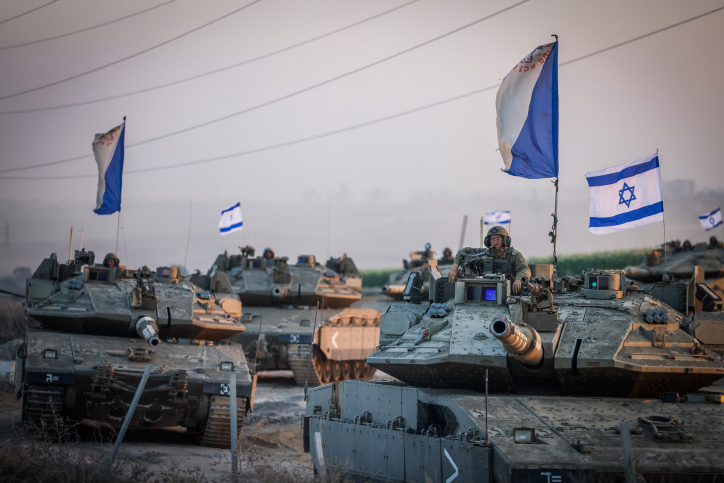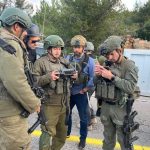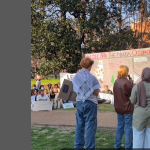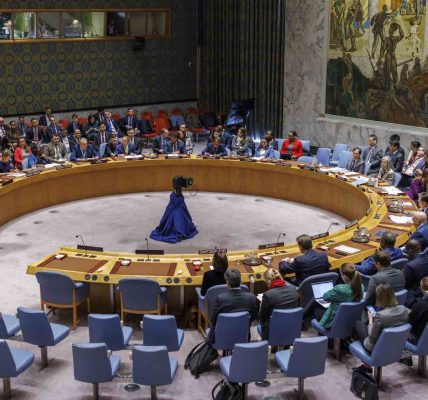
Israel’s lengthy phrase strategy really should be a prevention of a navy build up in Gaza.
By Yaakov Lappin, JNS
As reports carry on to emerge about endeavours by the Israel Protection Forces to established up a kilometer-large buffer zone in Gaza to defend southern communities, a main Israeli armed service strategist has advised JNS that the broader intention of protecting against the re-emergence of a terror army in the Strip must be a much much more crucial, lengthy-term Israeli objective.
Brig. Gen. (res.) Eran Ortal, previous commander of the Dado Heart for Multidisciplinary Military Contemplating, an IDF army scientific tests department, who is today a senior investigate fellow at the Start out-Sadat Center for Strategic Studies, observed the dominant imagining inside military circles now about the require to create these a zone, finish with a number of limitations.
He additional, having said that, that this is basically the latest in a sequence of Israeli ventures to set up defensive buildings, most of which were being not productive.
“Why do we think that this time the impediment will do the job? Every single one of these past obstructions was condition of the art in its time,” said Ortal.
“I am not from boundaries, but the real query in my eyes is not whether or not a kilometer of a buffer zone will offer adequate house to produce a warning before attacks arise,” he added.
Ortal mentioned that for instance, in excess of time it will become progressively difficult for Israel to enforce a “kill zone” in the buffer region, as terrorists will repeatedly take a look at Israel’s responses by approaching the border, mingled amongst civilians or under the guise of civilian routines.
As an alternative, he argued, Israeli lengthy-expression strategic efforts in Gaza must be targeted on the key objective of protecting against the re-emergence of a terror army anyplace in the Strip, which would necessarily mean that a buffer zone would not even be automatically required to guard the south.
In a paper to be posted shortly by BESA, Ortal writes that acquiring a sustainable protection system must be dependent on competitive wondering, this means not only giving remedies to enemy threats, but enabling Israel to carry on with army endeavours around a extended phrase, and to “deal with the truth that the enemy responds.”
Automatic responses to failures, which occurred both equally soon after the 1973 Yom Kippur War (these types of as enlarging the armed service to an unsustainable dimensions), and currently, by developing new and improved border obstructions and by (as soon as again) enlarging the IDF, could switch out to be minor more than “technical lessons,” Ortal cautioned.
A deeper strategic slip-up, he argues, has been the recurring pattern of letting terror armies in Lebanon and Gaza to progressively develop up large arsenals of ballistic projectiles and anti-tank missiles, and accepting a fact in which Israeli decision makers grew to become deterred by the paralysis these arsenals could induce to the Israeli home front.
In the long run, this pattern that created a vicious cycle of further enemy drive develop-up and Israeli passivity, Ortal argued.
As this kind of, Ortal said, continuous offensive raids into Gaza by the IDF, mixed with ahead offensive programs that instantly strike anti-tank missile cells and rocket launchers promptly soon after these attack Israel, would go a prolonged way in direction of a sustainable approach.
To empower this, he stated, Israel ought to take into account setting up on the border with Gaza a forward detection and strike process that quickly locates the supply of anti-tank and other rocket hearth, and returns fireplace inside of seconds.
This, he said, would pose an intolerable hazard to enemy missile cells, a reality that could be remarkably related in the coming months thanks to the possibility that quite a few anti-tank missiles and launchers might continue to be accessible to terrorists in Gaza.
Placing up this kind of a forward automatic-strike layer would be much more powerful than a buffer zone, Ortal argued, given that even essential anti-tank missiles with a five-kilometer assortment could threaten southern communities from deeper in Gaza, behind the buffer zone.
“On the defense point of view we failed two times,” Ortal wrote in a former paper that examined basic mistakes leading up to Hamas’s Oct. 7 invasion.
“First, we allowed the Hamas and Hezbollah terror entities to construct total-size armed forces methods on our doorstep, in populated terrain that deprives us of even nominal early warning. Next, struggling with that problem, we did not absolutely deploy for protection. Instead, we retained our deployment on a ‘routine security’ protocol, the IDF’s model of a program of border safety.”
All through intervals of relaxed, he mentioned, Israel refrained from any sizeable preventive exercise and authorized the enemy to entrench alone right following to Israel’s borders.
The outcome: “We misplaced the early warning buffer and did not reevaluate our defensive deployment.”
In addition to ongoing cross-border raids by the IDF in Gaza to avoid terrorists from regrouping, ensuring proper operational readiness on the section of IDF border units and the placing up of a militia-based, perfectly-armed civilian reaction groups in southern communities, Ortal outlined a resolution he has been advocating for quite a few years.
This method includes the building of mobile intelligence, surveillance and reconnaissance units (not like the mounted IDF border sensors taken out by Hamas on Oct. 7) and an automated return-fire procedure, functioning regularly on the border, collectively with models that can independently activate plane, unmanned aerial methods and other abilities.
Fast locating and routinely hanging sources of enemy fireplace should be a vital facet of this long term array, he reported. “The IDF the moment had fantastic counter-battery fire [the ability to hit the enemy’s firepower sources] abilities, but they are now outdated. A significantly more quickly and a lot more exact ability will have to be designed that can demolish launchers prior to they are withdrawn powering include,” he mentioned.
The put up Previous Israeli commander highlights vital advancements for Gaza border protection appeared initial on Planet Israel Information.







